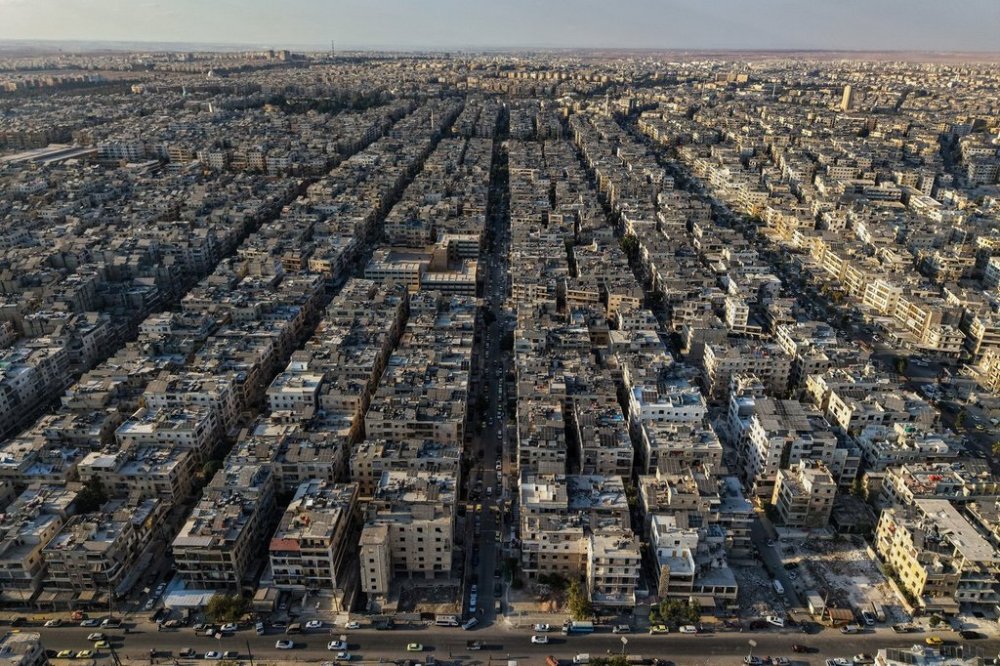UN strives to work with new Syrian government to determine the fate of the missing
Advertisement
Read this article for free:
or
Already have an account? Log in here »
To continue reading, please subscribe:
Monthly Digital Subscription
$1 per week for 24 weeks*
- Enjoy unlimited reading on winnipegfreepress.com
- Read the E-Edition, our digital replica newspaper
- Access News Break, our award-winning app
- Play interactive puzzles
*Billed as $4.00 plus GST every four weeks. After 24 weeks, price increases to the regular rate of $19.00 plus GST every four weeks. Offer available to new and qualified returning subscribers only. Cancel any time.
Monthly Digital Subscription
$4.75/week*
- Enjoy unlimited reading on winnipegfreepress.com
- Read the E-Edition, our digital replica newspaper
- Access News Break, our award-winning app
- Play interactive puzzles
*Billed as $19 plus GST every four weeks. Cancel any time.
To continue reading, please subscribe:
Add Free Press access to your Brandon Sun subscription for only an additional
$1 for the first 4 weeks*
*Your next subscription payment will increase by $1.00 and you will be charged $16.99 plus GST for four weeks. After four weeks, your payment will increase to $23.99 plus GST every four weeks.
Read unlimited articles for free today:
or
Already have an account? Log in here »
UNITED NATIONS (AP) — The head of a U.N. body established to determine what happened to potentially hundreds of thousands of people missing in Syria said Wednesday it was essential to find a way to work together with a new Syrian commission.
Assistant Secretary-General Karla Quintana said the Independent Institution on Missing Persons in Syria, established in 2023, was only able to enter the country in January, a month after the overthrow of President Bashar Assad, whose family had ruled Syria for more than 50 years.
Quintana said the most important challenge now was to coordinate with the Syrian Commission on Missing Persons, established in May by the transitional government.

Before Assad’s ouster, 130,000 people were estimated to be missing in Syria. But the Syrian commission’s head, Mohammed Reda Jalkhi, said in August that estimates ranged from 120,000 to 300,000 and there “could be more.”
The U.N. institution is investigating “forcible disappearances” by the Assad regime, missing children placed in orphanages by security services, and disappearances by the Islamic State group, Quintana said.
“Everyone has someone or knows someone that is missing in Syria,” she told U.N. reporters.
She is returning to Damascus next week and hopes to sign a memorandum with the Syrian commission.
“I truly believe that in this moment, the question is not if we are going to work together, but how In practice, this is going to look like,” Quintana said. “I am positive that we are going to find a way forward.”
She said her organization has opened several lines of inquiry, has developed data analysis capabilities and is developing a forensic network. She said developing a registry with detailed information on the missing is crucial for all parties.
In addition to meeting Syrian families with missing loved ones, she said the U.N. institution has been meeting with representatives of countries whose citizens are missing in Syria, including the United States, Greece, Iraq, Italy, Jordan, Lebanon and Poland.
”We don’t want the families or the mothers of the missing to start dying before us being able to find an answer,” Quintana said. ” We need to work as fast as possible.”

